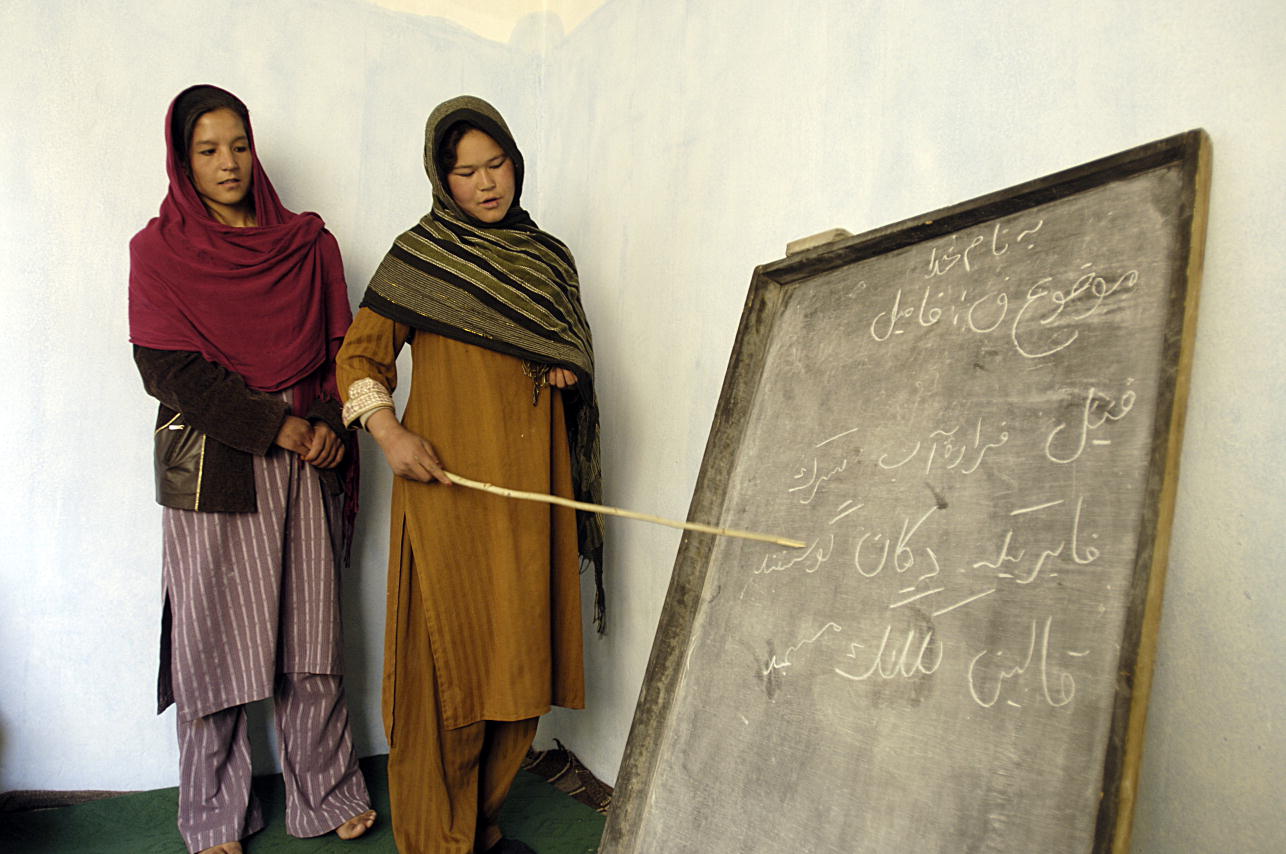
FEMALE RELIGIOUS ACTORS: Religious Knowledge as a Source of Legitimacy for Women Peacebuilders in Afghanistan
Women comprised less than a quarter of the Afghan religious peacebuilders network examined, and most of them were engaged in peacebuilding work focused on education, including teaching peace and conflict resolution from an Islamic perspective or raising awareness in their spheres of influence about what Islamic sacred texts say about peace.

DIASPORA: Local Elites Hold Negative Views of Diaspora as Peacebuilders in Bosnia and Herzegovina
In most cases, local elites hold a negative view of the role of the diaspora in peacebuilding and, at best, view diaspora engagement as limited to economic development.

Stop Tightening the Thumb Screws, A Humanitarian Message
Stop Tightening the Thumb Screws, A Humanitarian Message by Kathy Kelly 1020 words U.S. sanctions against Iran, cruelly strengthened in March of 2018, continue a collective punishment of extremely vulnerable people. Presently, the U.S. “maximum pressure” policy severely undermines Iranian efforts to cope with the ravages of COVID-19, causing hardship and tragedy while contributing to … Read more

Social distancing? Peace and social justice demand more coming together, not more distancing
Social distancing? Peace and social justice demand more coming together, not more distancing by Kevin Martin 718 words “Social distancing” (or maybe more properly “appropriate physical spacing”) is something people everywhere need to practice in the near term to get through the Covid-19 crisis. And it likely won’t be the last time, unfortunately, that a … Read more
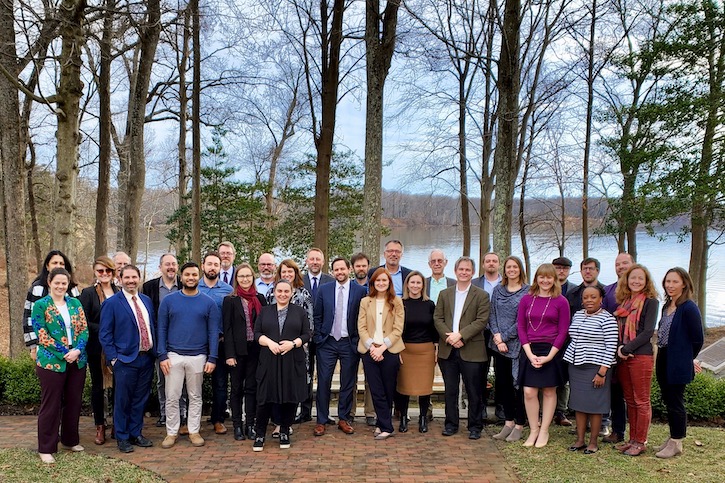
War Prevention Initiative at the Better Evidence Workshop
Kelsey Coolidge, Associate Director of the War Prevention Initiative was invited to participate in the Better Evidence Workshop in Washington, DC.
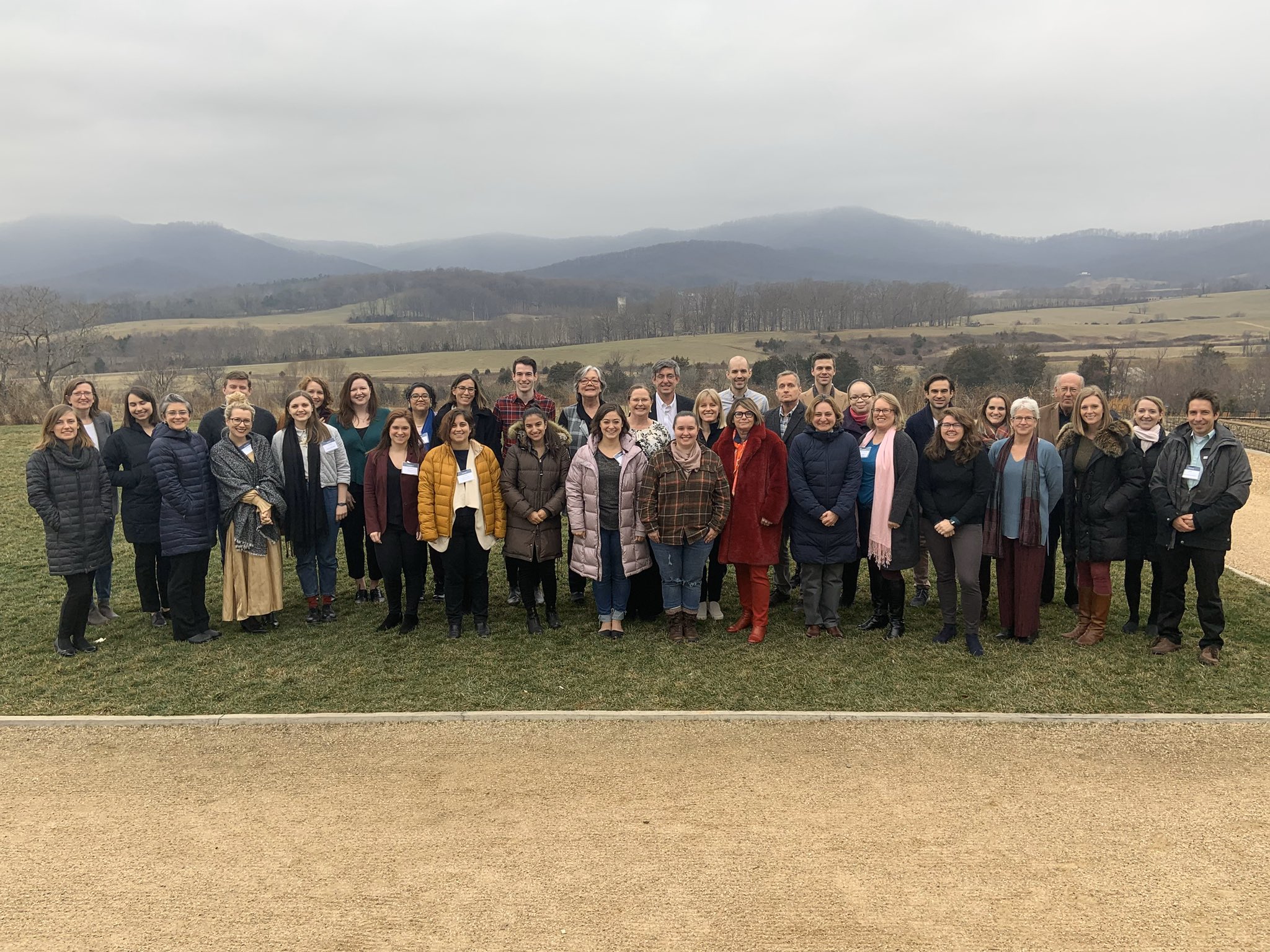
Gender Champions in Nuclear Policy Strategy Retreat
War Prevention Initiative Executive Director Patrick Hiller participated in a strategy retreat for the Gender Champions in Nuclear Policy Initiative.
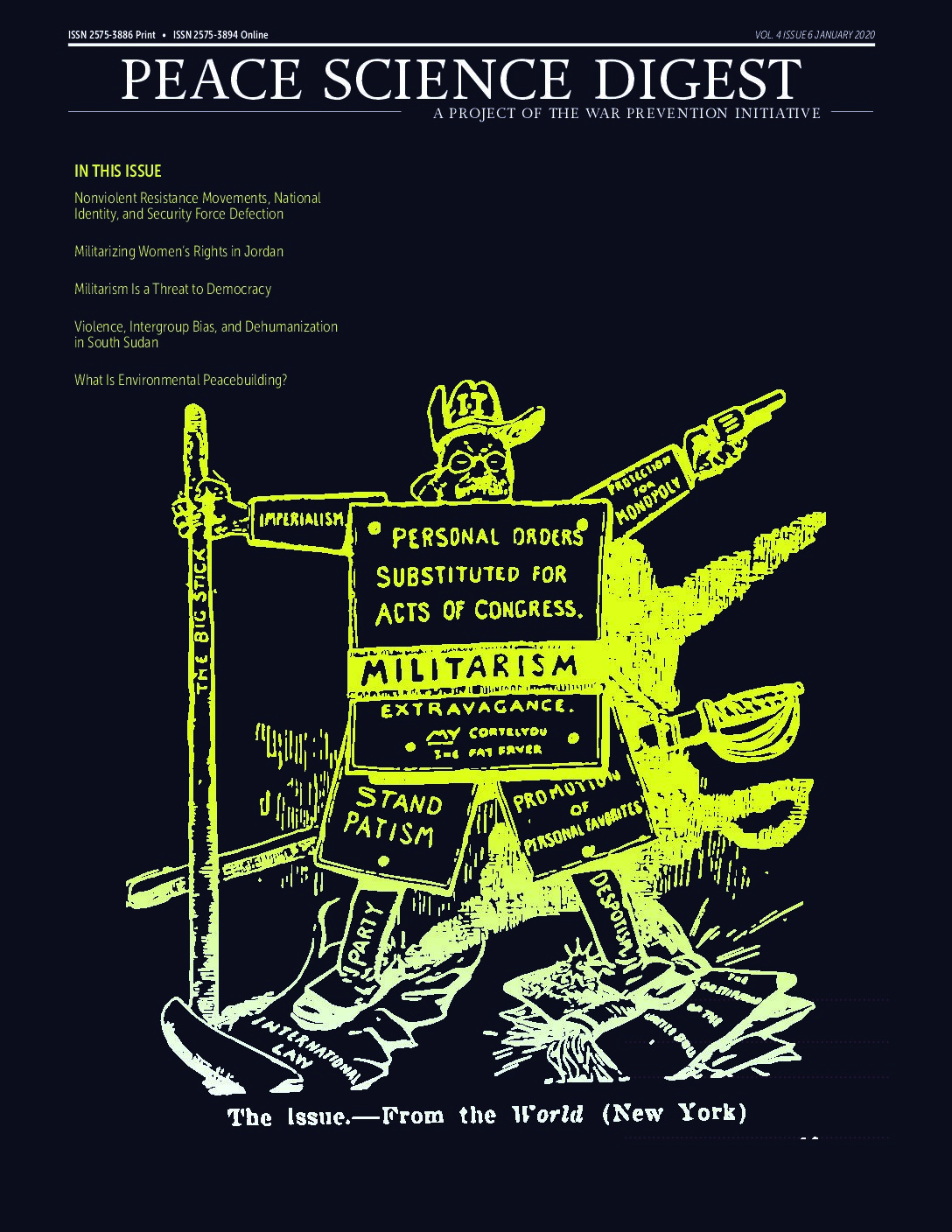
Volume 4, Issue 6
As of January 2020, The U.S. and Iran have walked back from the precipice of war. The recent escalation underscores the prevalence of militarism, especially here in the U.S.—and why the work of the Peace Science Digest in countering militarist narratives is so urgently needed. In particular, our first task … Read more

What is Environmental Peacebuilding?
Environmental peacebuilding is an emerging field that views conflict over environmental resources as an opportunity for conflicting parties to cooperate with one another and, ultimately, work towards establishing a lasting and sustainable peace.
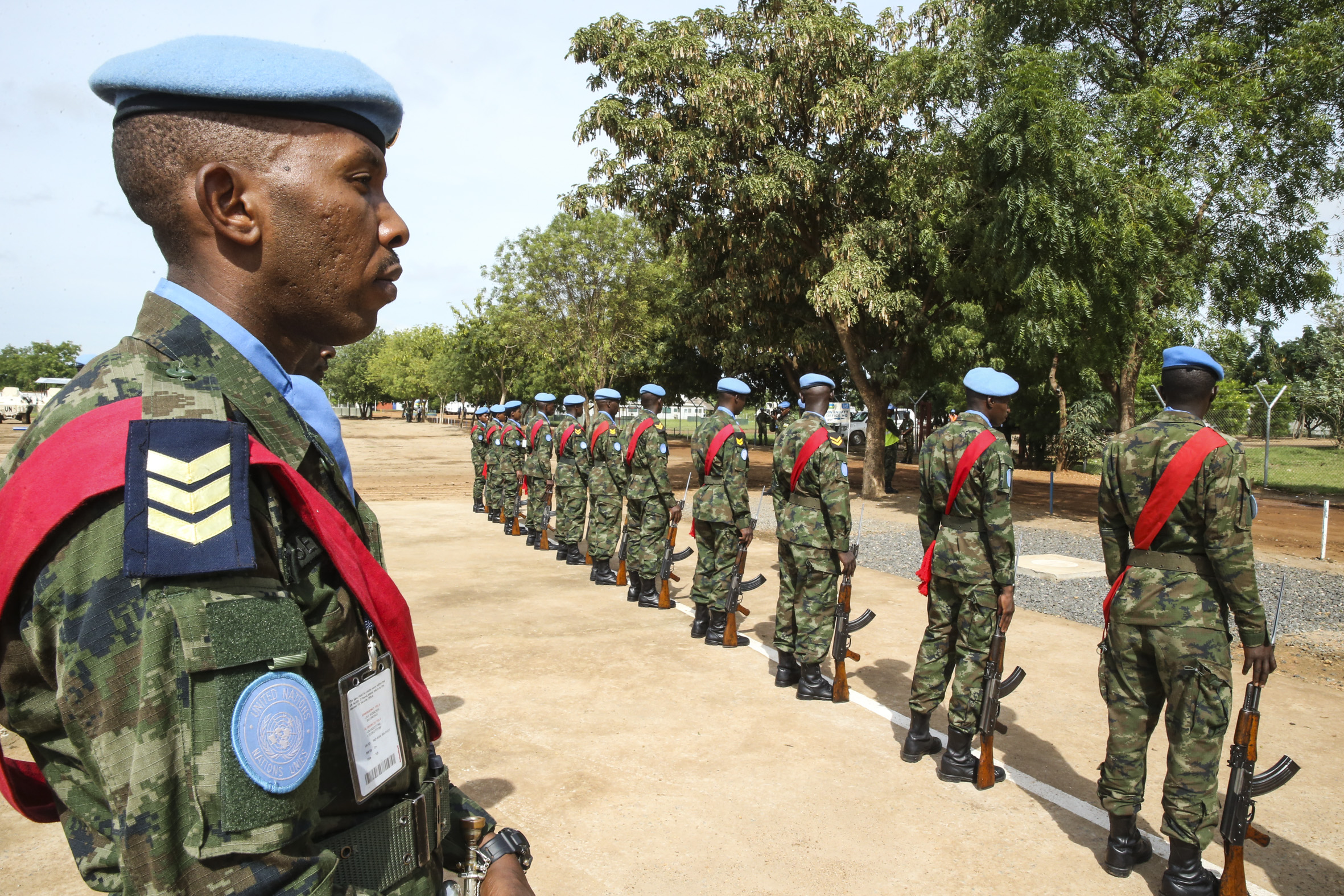
Violence, Intergroup Bias, and Dehumanization in South Sudan
There was evidence of only “mechanistic dehumanization” among Dinka respondents towards Nuer and no evidence of any form of dehumanization among Nuer respondents towards Dinka.

Militarism Is a Threat to Democracy
In the context of OECD countries over the time period of 2010-2016, militarism has an adverse impact on democracy over time.

Militarizing Women’s Rights in Jordan
Women’s rights activists in Jordan understood that making progress on women’s rights legislation was contingent on navigating a militarized political landscape where a protectionist narrative of women’s rights would make legislation more likely to pass.
